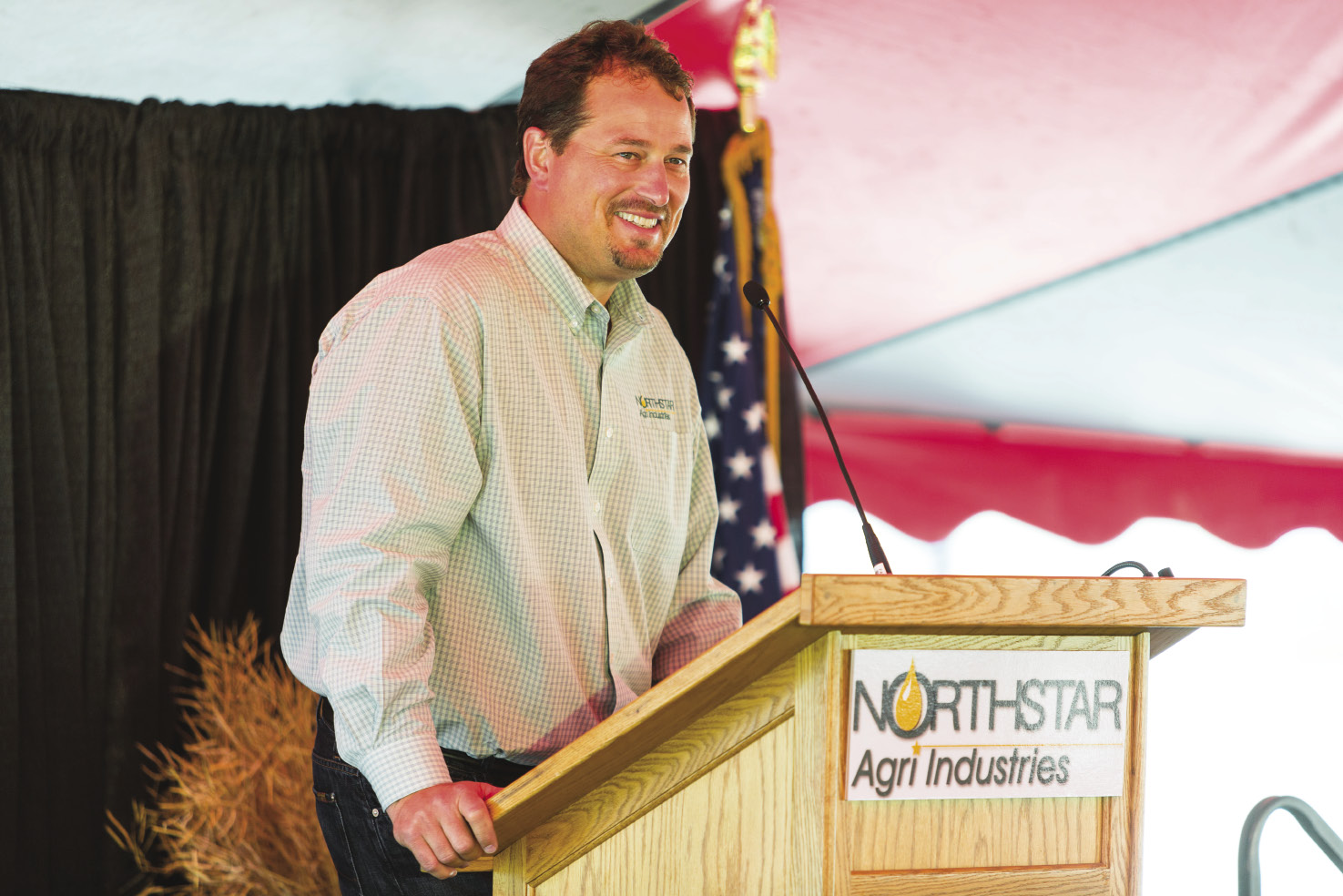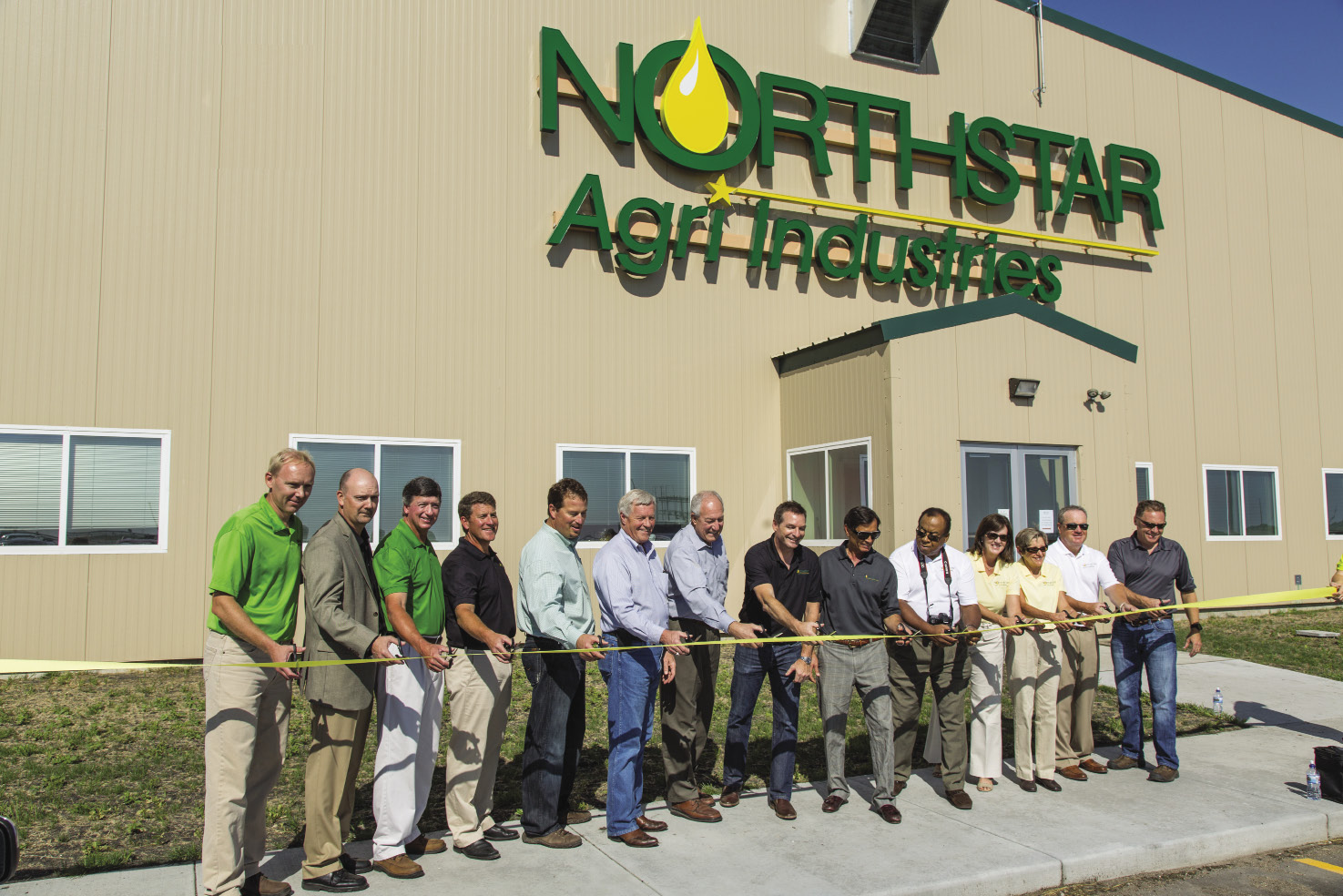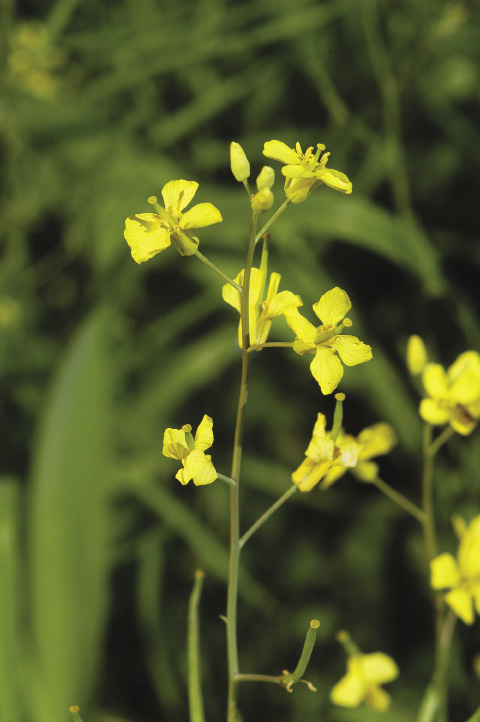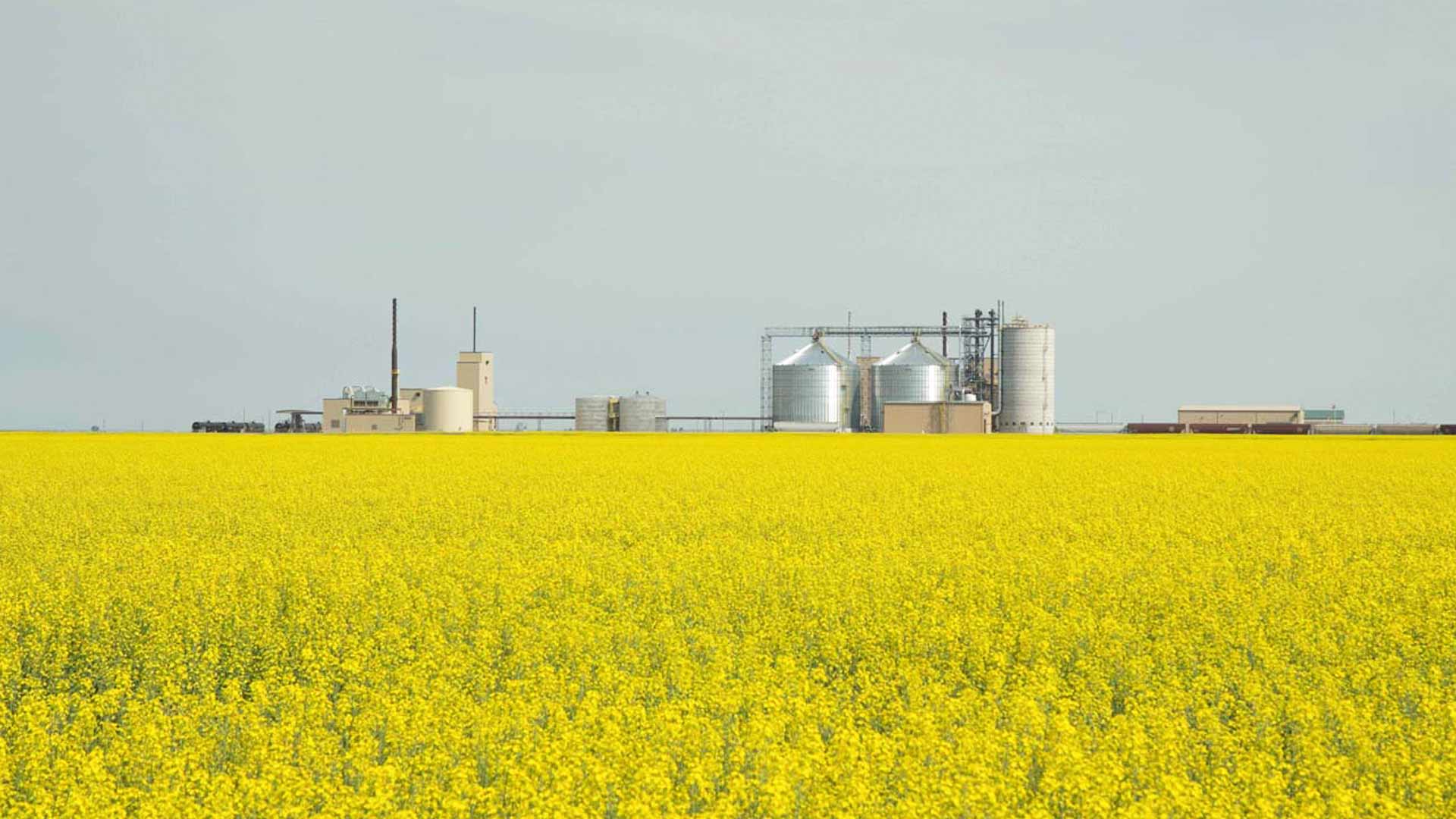— by Jonathan Eisenthal
photos by Rolf Hagberg and Video Arts Studios
Tucked in the far northwest corner of Minnesota, Hallock is home to just under 1,000 residents, and Kittson County has a population of approximately 4,000. While it is a sparsely populated area, it is very near the borders of Canada and North Dakota, both of which are primary producers of canola, known for the health benefits found in its food-grade oil. In addition, Hallock is near important railway and highway routes, making this corner location a perfect fit for the state’s first canola processing plant, which celebrated its grand opening in August.
“This plant provides an anchor industry to this corner of the state,” explains Michael Sparby, AURI senior project strategist, who helped gather stakeholders interested in bringing agriculture processing to the area in order to boost area farmers and strengthen the rural economy.
“We’ve created 47 full-time jobs in Kittson County, and their wage rates range from $15 to $22 dollars an hour, plus benefits. It’s a $3.5 million total payroll per year,” says Neil Juhnke, president and COO of

Northstar Agri Industries, which operates the plant.
In addition to providing jobs, about 100 individual local farmers and business people in the area own a substantial stake in the business. The majority of the company is owned by NASDAQ-traded PICO holdings, a La Jolla, California company.
The Long Road

Discussions about how to bring agriculture processing to this part of the state began in the early 2000s. Few enterprises can match the level of local recirculation of dollars that businesses like ethanol plants and crushing plants can bring to a region, and the more times a dollar is spent locally, the higher the economic impact. It was with this in mind, leaders initially envisioned a biodiesel plant for the Hallock area; AURI and the Northwest Regional Development Commission teamed up to pull together regional stakeholders as well as the the USDA to examine the feasibility of the concept.
“We’re experts on biodiesel and the value-added uses of oil,” says Sparby. “Part of the importance of feasibility studies is to save money by determining early on whether a plan is economically viable.”
So, as market conditions changed, and a biodiesel plant became less economically viable, the value of food-grade oil, such as canola oil, began to rise, bringing interest from outside capital investors and management. Once plans for the canola crush plant were finalized, the plant was built in about 16 months. The plant includes a grain receiving and storage facility, a crush plant that produces both crude canola oil and high protein canola meal animal feed, and a refinery that produces the food-grade oil.
Production began in May and reached full capacity—crushing a thousand US tons of canola a day—in early June.
Northstar’s management praises the role AURI played in helping to initiate the idea of value-added agricultural processing in Northwest Minnesota, and is looking to AURI for support as the business continues to grow and develop.
“AURI has always been supportive of this type of product, and our contact with them during the development was important,” says Juhnke.
Adding value to the future
 Canola growth in the northwest part of the state has already increased, thanks in part to the plant. In 2011, there were just over 20,000 acres of canola grown in the northwest part of Minnesota. In 2012, there are 60,000 acres of canola being grown.
Canola growth in the northwest part of the state has already increased, thanks in part to the plant. In 2011, there were just over 20,000 acres of canola grown in the northwest part of Minnesota. In 2012, there are 60,000 acres of canola being grown.
Approximately 40% of a canola seed is used for the food-grade oil that is praised for being low in saturated fat and containing both omega-6 and omega-3 fatty acids. The other 60% of the seed is used for meal for cattle and pigs.
Part of the vision for the future includes finding ways to add value to the meal coming out of the plant as well as the coproducts, which are the leftovers that occur during the canola processing. What remains after refining the crude oil is soap stock and distillate, which is a source for Vitamin E. Northstar currently sells these materials to a third party for further refining.
“The potential always exists for Northstar to do its own soap stock production or other value-added uses with these coproducts,” says Juhnke. “AURI can bring a lot of expertise on alternate product utilization to the table.”
With an eye to the future, company officials have already filed for permits needed to expand plant operations.

